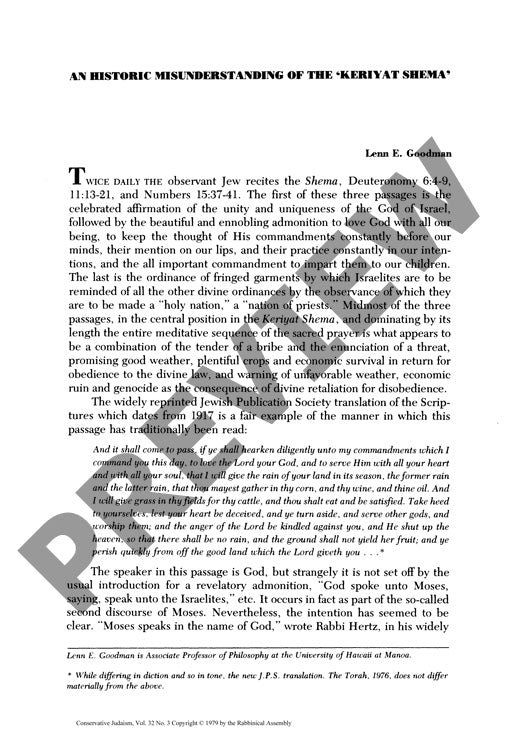An Historic Misunderstanding of the Keri
Couldn't load pickup availability
A pivotal passage in the Keriyat Shema has been misread for centuries, shaping Jewish-Christian discourse and modern biblical interpretation. The traditional reading of Deuteronomy 11:13-21 portrays God offering material rewards for obedience and threatening punishment for disobedience - a theological stumbling block suggesting divine bribery. Through careful syntactical analysis of the Hebrew conditional sentence structure, comparison with Deuteronomy 6:10-12, and examination of conjunction placement, this research reveals a fundamentally different meaning. Rather than promising supernatural agricultural intervention based on human behavior, the text delivers a moral warning against spiritual complacency during prosperous times. The misidentification of where the consequent clause begins in the conditional statement has perpetuated this misunderstanding from ancient Christian polemics through contemporary biblical commentaries. This reinterpretation resolves longstanding theological difficulties while preserving the text's emphasis on the natural consequences of moral choices. The passage emerges not as a transactional covenant based on material incentives, but as an admonition against taking divine gifts for granted.

More Information
-
Physical Description
-
Publication Information
Published 1979
ISBN
-
Publication Credits
Lenn Goodman

